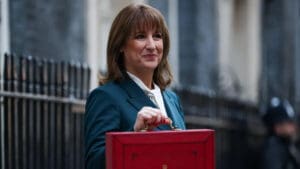Chancellor Rachel Reeves has delivered her second Budget, unveiling a wide-ranging package of tax, spending and regulatory measures shaped by weeks of leaks — and an accidental early publication of the OBR’s official forecasts.
Here is a comprehensive overview of the main changes affecting households, businesses and the wider economy.
Personal taxation
Reeves confirmed that income tax and National Insurance thresholds will be frozen until 2031, extending the existing freeze by an additional three years. The move will gradually pull more earners into higher tax bands as wages rise.
The annual cash ISA allowance for under-65s will be capped at £12,000, with the remaining portion of the £20,000 limit available only for investment ISAs. Dividend tax rates will rise by two percentage points from April, while all tax rates on savings income will increase from 2027.
Wages, benefits and pensions
Reeves announced that the controversial two-child benefit cap will be scrapped from April, allowing families on Universal Credit and tax credits to receive payments for all children.
The National Living Wage will rise by 4.1% to £12.71 for over-21s. Rates for 18–20-year-olds will jump 8.5% to £10.85, part of a longer-term plan for a single adult wage rate.
State pensions will increase by 4.8% in April under the triple lock, outpacing current inflation. Meanwhile, from 2029, the amount employees can contribute via salary sacrifice without paying National Insurance will be capped at £2,000 a year. The Help to Save scheme for low-income households will be extended beyond 2027.
Housing and property
Properties in England valued at over £2 million will face a new council tax surcharge of £2,500 to £7,500, following a revaluation focusing on bands F, G and H. Taxation on rental income will rise by 2 percentage points from April 2027.
Transport
The temporary 5p fuel duty cut will be extended yet again, running until September 2026 before phasing out over six months.
A new mileage-based tax for electric and plug-in hybrid vehicles will be introduced from 2028, marking the first major restructuring of motoring taxes in the EV era.
Regulated rail fares in England will be frozen next year, the first such freeze since 1996. Premium cars will be excluded from the Motability scheme.
Business taxes
The £135 tax exemption on small imports from overseas retailers will be scrapped from 2029 to address concerns about unfair competition for UK businesses.
A major overhaul of gambling taxation will see the tax on profits from online bets rise from 21% to 40%. The longstanding 10% bingo tax will be abolished.
Drinking and smoking
The sugary drinks levy will be expanded from 2028 to include pre-packaged milkshakes and lattes, reversing exemptions granted in 2018.
Taxes on tobacco will rise by 2% above RPI, while alcohol duty — including on draught drinks — will also increase in line with the higher RPI measure in February.
The economic outlook
The OBR now expects UK GDP to grow 1.5% in 2025, an upgrade from its 1% forecast in March. However, growth between 2026 and 2029 is forecast to average just 1.5%, down from earlier expectations of 1.8%.
Inflation is predicted to average 3.5% this year, falling to 2.5% next year and returning to the 2% target in 2027.
Other measures
English regional mayors will gain new devolved powers to tax overnight hotel stays, mirroring existing or planned powers in Scotland and Wales.
Finally, the cost of a single NHS prescription will remain frozen at £9.90 for another year in England.script for broadcast, I can produce that too.
Read more:
Budget 2025: Key announcements at a glance
















